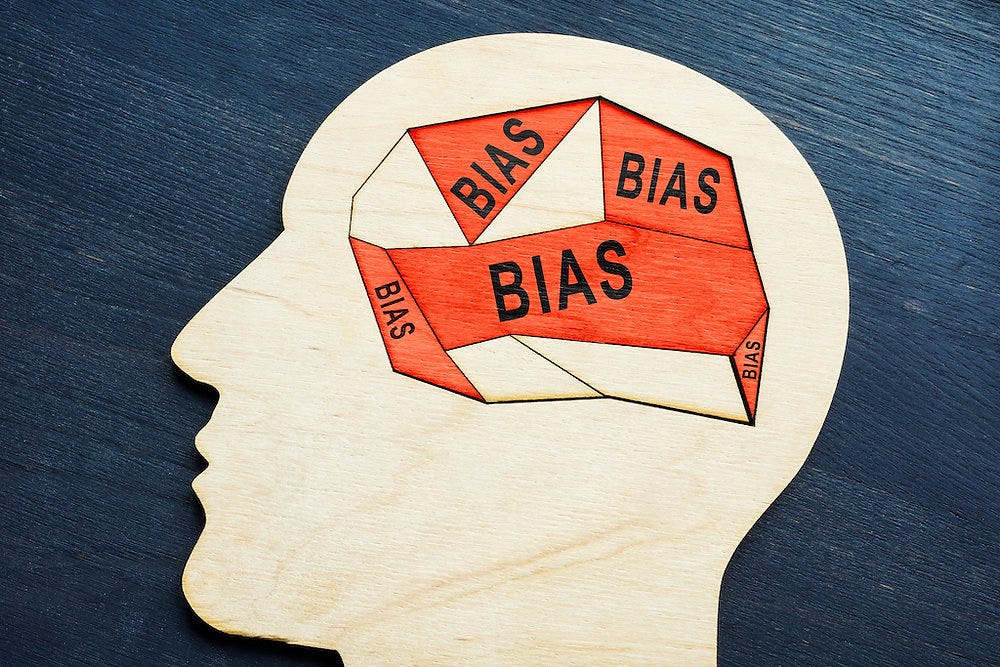I received an email the other day from someone upset with something they said I said about the current President of the US. I didn’t actually say it. But that’s not the point here. Misunderstandings are understandable.
The point: the writer went on to express disappointment in me. The person had believed that I was politically unbiased and the comment they thought I made was, to them, clearly biased.
So… am I biased?
Yes. Absolutely. 100%.
However, we don’t have to be our biases. Our biases don’t have to tunnel our vision. Nor should they.
God has created us with this remarkable ability to do something called “critical thinking,” the ability to question, doubt, and wrestle with information, biases, and beliefs.
Our biases don’t have to own us.
They should always be examined in the light of…
The Gospel.
Not politics.
Not ideology.
Sadly, for far too many Christians today, politics and ideologies are shaping our biases, not the Gospel.
Russell Moore, the editor of the Conservative Evangelical Magazine, Christianity Today, made this telling observation hearing from multiple evangelical pastors:
… multiple pastors tell me essentially the same story about quoting the Sermon on the Mount parenthetically in their preaching - turn the other cheek - to have someone come up after and to say, where did you get those liberal talking points? And what was alarming to me is that in most of these scenarios, when the pastor would say, I'm literally quoting Jesus Christ, the response would not be, I apologize. The response would be, yes, but that doesn't work anymore. That's weak. And when we get to the point where the teachings of Jesus himself are seen as subversive to us, then we're in a crisis.
So here’s my bias.
I share this not out of defensiveness triggered by the above email, but to invite you to consider what your biases are, where they come from, and how they shape your thinking, life, and politics. And to offer once again some insights into why I write what I write—where my heart (biases) are:
My bias is rooted in my understanding of the Gospel. It is an understanding that has grown and shifted over the years as I’ve questioned, doubted, and questioned some more what God is really up to in the Scriptures, and more significantly, in Jesus.
Some examples. (These are all culled from the Old and New Testaments but for a “quick” survey of the following, dive into Luke’s Gospel):
All human beings are created in the Image of God and are of great value to their Creator and should be treated as such, no matter who they are or where they come from
God, in the person of Jesus, runs to each and every person with grace—a grace that includes everyone and excludes no one
God’s heart—seen most clearly in Jesus—is to
Stand on the side of the poor and the oppressed (often in opposition to the rich)
Embrace the outcast
Welcome the stranger
Embrace all with God’s relentless, audacious grace
God’s call on our lives is to take up the cross of Jesus:
To love our neighbors (anyone in need) as we love ourselves
To clothe ourselves in kindness and compassion
To love our enemies
To live lives of overwhelming gratitude expressed through overwhelming generosity
To stand alongside the people God’s stands for
These biases influence my political biases. While I don’t believe the US is called to be, nor should be, a “Christian nation,” I do believe that our government should act humanely and compassionately per our Constitution and Bill of Rights. If policies from either side of the political spectrum uphold the dignity of all people, support and encourage the poor and outcasts and strangers among us, if those policies build strength through compassion, I’m all in. If those policies, from either side of the aisle, side with the rich over the poor or people who look like us over people who don’t, come from a place of anger, hatred, and outrage toward others, then I will stand against them.
In other words, my political biases are (hopefully) shaped by my Gospel biases.
Again, let me be clear. I do not believe that the US is a Christian nation. Christian nationalism, at its core, is not about implementing Gospel-oriented values. It’s about grabbing power and imposing a narrow, restrictive, angry, retributive view of God on the rest of us.
The challenge for US Christians in 2025 and beyond is how to take up the Cross, how to love the Lord with all of our heart, soul, mind, and strength and our neighbors as ourselves, in a political system with two parties that tend to work from the fringe.
Those of us claiming to follow Jesus, no matter where we are on the theological perspective, should share one bias in common. We follow Jesus. Not political parties, Ideologies. Or political leaders.
So. Yes. I am biased.
But still open to the Spirit of God…






Tim, I agree 100% by your words of wisdom. I'm so sad by how people are being treated. Thank you for helping us all focus on what really matters.
Lynda Glasoe
Thank you Tim, your caring, giving and loving biases taught by Jesus are what we need as a nation. I also anger at exclusion, hate and disregard for the needs of people for self interest.
Thanks for your message
Dave Folsom